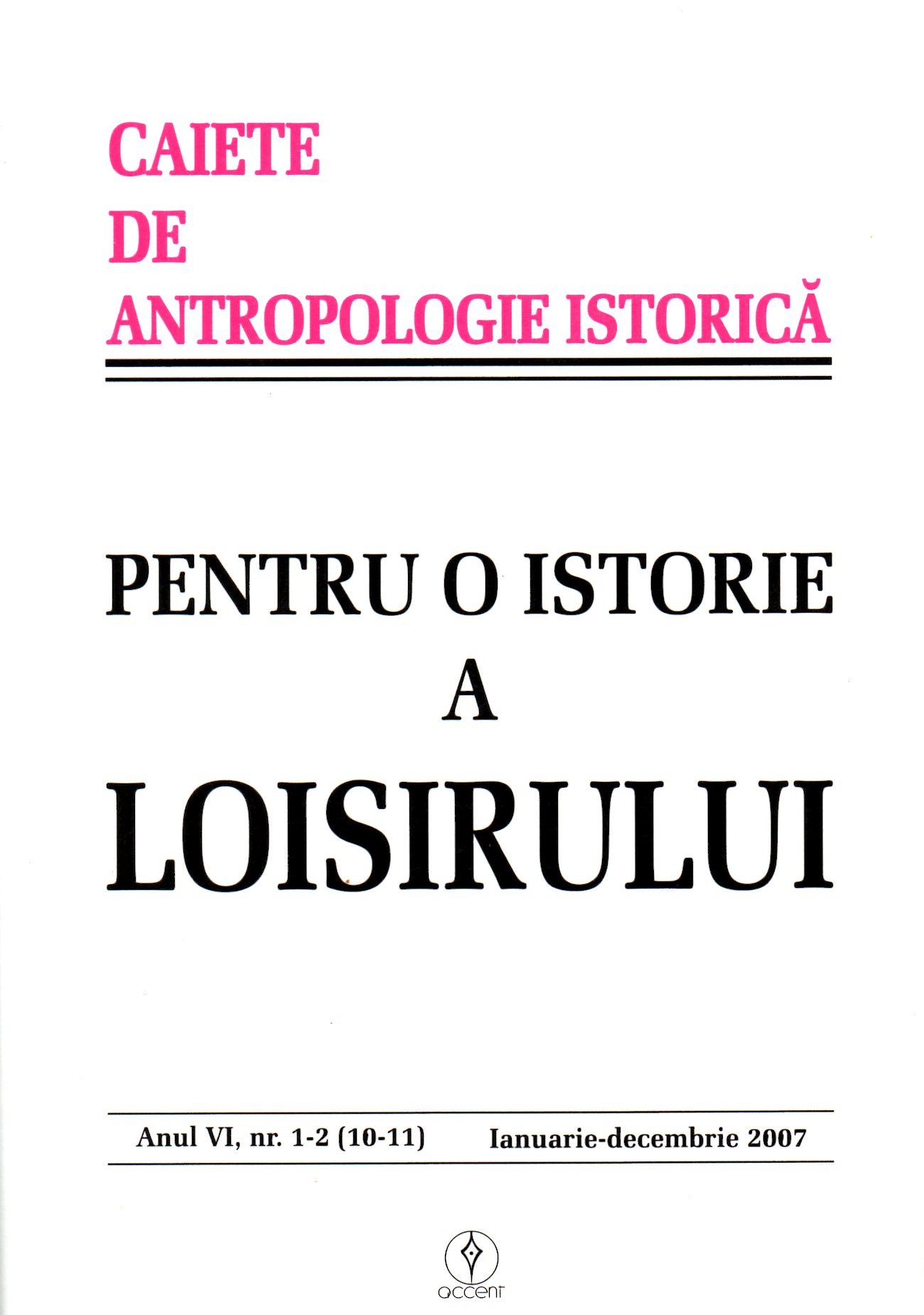Timp liber, distracţie, joc. Sensibilităţi şi metamorfoze de-a lungul istoriei
Leisure, Entertainment, Game. Sensibilities and Methamorphoses throughout History
Author(s): Simona NicoarăSubject(s): Cultural history, History of ideas
Published by: Accent Publisher
Keywords: leisure; entertainment; sensibilities; metamorphoses; history; revolution; industrial;
Summary/Abstract: Time occupies a strategic place in people’s views on world and society, views making a historical era, a culture specific. This is why the change in the views concerning time, duration and life has always meant the modification of some values and attitudes which influenced deeply the history of the different societies. The major historical epochs were characterized by the specific relationship between time and work; they were built on different experiences of time, and the differences in mentality were converted into different lifestyles. A wide chronological plan may highlight better the originality, the constants or the differences between the various historical periods in these respects, which are not at all negligible related to society. Neither work, nor games, dancing, music has had the same significations and contents in the course of the ages and civilizations. We, modern men are far away from what the people of the Antiquity or of the Middle Ages understood by these cultural forms, due to the appetite for the profane, which has been progressively increasing in the last few centuries. The great change, which was amplified with the dawn of modernity, was the slow decline of the sacred time in favor of the profane one, the latter being filled with more and more varied activities and aimed at people’s comfort, happiness and welfare. Leisure, entertainment and games as lived and practiced in rural communities differed from the more complex ritual of the fashionable urban society, and the modification of customs after the 17th century was marked by the appearance of new ways of spending the time. The great mutations in the ideas on games, entertainment and leisure were felt most forcibly in the 17th century. The rearrangement of work rhythms related to the industrial revolution of the 19th century meant a tendency to limit the productive time. This left to the craftsmen and workers – less to the peasants – an autonomous period of time open to spontaneity, which opened the sphere of Dionysian, ludic wishes, but also founded new attitudes and social values. The anxiety of the temporal pressure desecrated the old traditional rhythms, increased the necessity to section the hours, days and months. The 20th century was characterized, in general, by the democratization of games, entertainment and leisure, which, theoretically, had to be accessible to all social categories. The western world has become a vast playing and entertainment field, showing a tendency to spread worldwide this model, which proclaims that man is no longer “the plaything of gods”, as Plato once said, and through the secularization and laicization of society he no longer feels “censored” by the awed formula of the medieval civilization God does not want us to remain idle! The metaphor of our age has become: all is play and show.
Journal: Caiete de Antropologie Istorică
- Issue Year: 2007
- Issue No: 10-11
- Page Range: 15-30
- Page Count: 16
- Language: Romanian

